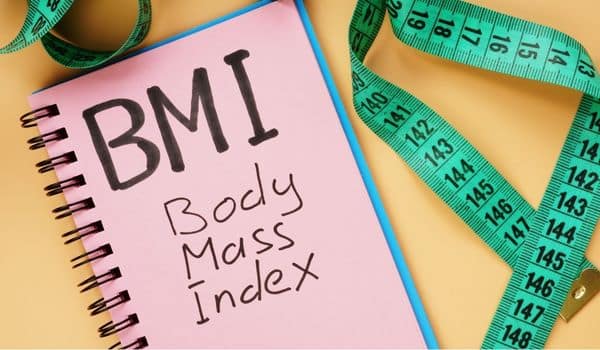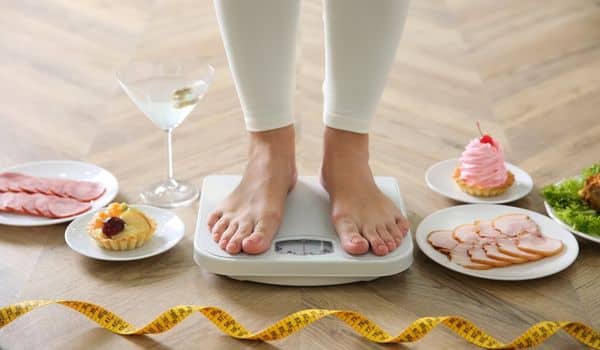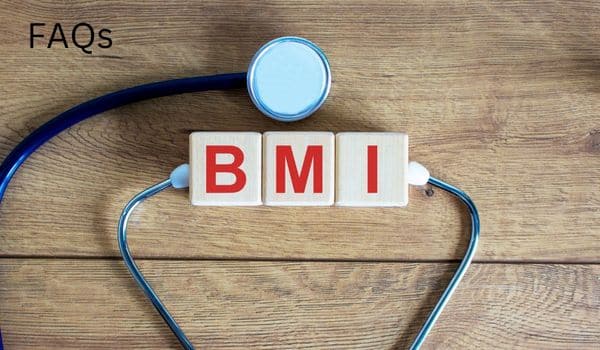What is an Ideal Weight For Plastic Surgery?
If you are considering a plastic surgery procedure, your health, fitness level, and weight will impact your recovery & results and hence your ability to be eligible for surgery. As a Specialist Plastic Surgeon, Dr Mark Gittos believes that an essential part of the plastic surgery journey is education about health and well-being – and a big part of that is body weight!
Before your surgery date, it’s essential to be at a healthy body weight for your height. If you are happy with your weight, this makes it easier for you and Dr Gittos to decide on a plastic surgery plan that will deliver long-lasting results. Your Body Mass Index, or BMI, strongly connects with how well you recover from surgery and how good your plastic surgery results are.
It’s important to determine your BMI and learn how this will impact your plastic surgery before booking your procedure.
PLEASE NOTE that Dr Gittos will NOT operate on patients with a BMI over 28.
What Does BMI Mean?

Body Mass Index (BMI) is a healthcare tool that medical professionals worldwide use. The BMI scale uses measurements of your height and weight to see if your body weight is in a healthy range. Many healthcare professionals, including plastic surgeons like Dr Gittos, use BMI measurements to help decide if surgical procedures or specific medical treatments will be safe and effective for your body.
BMI takes into account the following:
- Your height
- Your body weight
BMI does not take into account any other factors, such as:
- Your age
- Your gender and/ or biological sex
- Recent changes in your body, such as weight loss or muscle gain
- Your body composition
- Your ethnicity
- Whether or not you smoke
To check your BMI, take a height and weight measurement and use the tool through the New Zealand Heart Foundation website here. Make sure to note your current BMI on a piece of paper or your phone so that you can check back later and see if there are any changes. This is an easy way to monitor your progress and ensure that you stay on track as you approach your surgery date.
What Is A Healthy BMI?
BMI calculations convert your height and weight into one number, which you can compare to a BMI chart to easily determine if your BMI is in a healthy range. While BMI doesn’t consider all of the factors that can make you healthy or unhealthy, it is unlikely that you will have a BMI in the overweight or obese range if you eat a healthy diet, sleep well, and exercise regularly schedule.
| BMI | BMI rating |
| Under 18.5 | Underweight
|
| 18.5-25 | “Normal” weight
|
| 25-30
|
Overweight
|
| More than 30 | Obese
|
Does A Healthy BMI Mean That I Can Have Plastic Surgery?
While BMI is a useful tool for surgeons, a healthy BMI doesn’t guarantee that you will be able to have plastic surgery. Some other factors that Dr Gittos will need to discuss with you to see if surgery is recommended for you are:
- Any current health conditions
- Your medical history
- Your surgical history
- Your attitude, beliefs, and expectations about surgery
- Whether or not you smoke
- If you are on any prescription drugs
Dr Gittos will only perform plastic surgery on patients with a BMI less than 28 and who do not smoke, vape or take nicotine.
This is because smoking can increase surgery risks and slow down healing, and Dr Gittos wants to ensure that his patients have optimal results and a smooth recovery from surgery.
However, you can still plan plastic surgery if you are a smoker – you just need to make sure you have enough time to quit smoking before your surgery date. As well as making diet and exercise changes and maintaining a healthy BMI, Dr Gittos recommends quitting smoking as soon as possible if you are a smoker. If possible, you should quit smoking at least six months before your surgery date. Having surgery might just be a great reason to quit smoking and vaping.
If you need support or resources to help you quit smoking, you can contact Quitline for free advice, support, and medication. You don’t need to do it alone!
Why Will My BMI Be Discussed During My Consultation?
One of the things that Dr Gittos will discuss with you during your initial plastic surgery consultation is your weight, health, and Body Mass Index.
This is important because your BMI can impact the following:
- The quality of your surgery results
- Which surgeries are you currently eligible for
- How long-lasting the results of your procedure will be
- Your chance of having complications due to the procedure
- How easy the recovery from your procedure will be
Dr Gittos is aware that, for some people, discussing weight and BMI can be uncomfortable or distressing. These conversations can sometimes feel very confronting if you are struggling with your weight.
However, discussing your BMI during your plastic surgery consultation brings you one step closer to the cosmetic results you want – and helps to ensure that your plastic surgery journey will be smooth, comfortable, and complication-free.
If you have any concerns about your BMI and how this will impact your initial consultation, please reach out to Dr Gittos for advice, guidance, or information.
How Does BMI Impact Healing And Recovery From Plastic Surgery?

A key reason for having a healthy BMI before your plastic surgery is the impact your BMI can have on wound healing. Many clinical studies have shown that there is a strong connection between your BMI and how well you recover from a surgical procedure.
A healthy BMI is in the range between 18.5 and 25 – the “normal” range. Having a BMI that is outside this range in either direction can slow down your healing and make your recovery process more stressful than it needs to be.
Having an overweight or obese BMI means that there are excess fat deposits throughout your body, which can make your internal organs less effective and decrease how well your immune system is able to fight off disease and infections. Although the risk of infection after plastic surgery is low, the chances are increased if you have an unhealthy BMI. With an overweight BMI, it can also take you longer to fight off infection.
Having a suppressed immune system can have negative consequences for your recovery, such as:
- Increased risk of infection during or after your procedure
- Needing additional time off work, school, and activity
- Taking longer to return to your previous activity levels
- Increased levels of discomfort during surgical recovery
- Increased risk of complications during or after your procedure
- A longer surgical recovery period
Having a high proportion of body fat also means that the levels of inflammation in your body are higher. One of the functions of fat cells is to create chemicals that are used in the “inflammatory response” – the body’s way of healing injury and fighting infection. However, with excess fat deposits, the level of inflammation can be too high.
High inflammation levels can cause:
- Slower wound healing process
- More discomfort during the healing
- Poor healing of plastic surgery incisions
- Altered appearance of plastic surgery scars
- Increased chance of surgical complications
- More swelling and bruising
I Want to Get Lipo – Do I Still Need to Have a BMI under 30?
While plastic surgery procedures such as liposuction, a tummy tuck, or a mummy makeover will improve the contour of your body and create a slimmer appearance through the removal of fat and skin tissue, cosmetic surgery is never a substitute for weight loss or exercise. In fact, making sure that you are at a healthy weight before having a weight-loss plastic surgery procedure will help you to have more natural-looking, aesthetically pleasing results.
For some people, a procedure such as liposuction will help to reduce the size of areas that are prone to excess stubborn fat, such as the chin, tummy or flanks. It’s tempting to think that plastic surgery can be an “easier way” of losing that excess weight! However, liposuction doesn’t help to increase the health of your organs, the strength of your muscles, or your physical fitness.
It is important to be as close to a healthy BMI as possible before having these procedures. This helps to ensure that your recovery will be smooth and that your results will be long-lasting and as close to your desired body as possible.
As well as undergoing your cosmetic surgery, Dr Gittos recommends taking steps for a healthier body, such as:
- Good sleeping habits
- Regular exercise
- Healthy nutrition
- Social support systems
- Lowering your stress levels
- Reducing consumption of alcohol
FAQs about BMI and Ideal Weight Before Surgery

What can I do to get a healthy BMI before having plastic surgery?
- The first step to aiming for a healthy BMI is deciding what your target BMI is. Although a BMI in the healthy range, between 18.5 and 25, is ideal, this might not be realistic for you, especially if you have a BMI in the obese category. It can be a good idea to discuss your BMI and weight loss goals with a trusted health professional, such as Dr Gittos, your general practitioner, or a registered dietician. A dietician can help you by creating a meal plan that will help you to meet your BMI goal, pointing out barriers to a healthy lifestyle and educating you on healthy choices. Part of your planning for surgery should include maintaining your “goal” BMI for a period of around six months before you have your procedure. This gives you time to:
- Figure out what works for you – Have a good diet and exercise plan in place
- Make sure that you have good support systems
- See what your body looks like at an ideal BMI
- Learn how to maintain your BMI in a healthy range
What if I gain weight after having plastic surgery?
- A little bit of weight gain or loss is a natural part of life, but it’s important to put steps in place to avoid gaining back the weight you have lost after you have had your plastic surgery procedure. Repeatedly gaining and losing large amounts of weight can cause joint problems, back pain, and loose skin – as well as causing stress! Weight gain after plastic surgery can decrease how long-lasting your results are, as well as causing cosmetic issues such as stretch marks. Strategies such as a diet plan, a personal trainer, and regular weight check-ins can help you to stay on track after you have recovered from your plastic surgery.
What should I do about excess skin after weight loss?
- If you have lost a significant amount of weight to achieve a healthy BMI, it is normal to have some loose or saggy skin, especially around areas such as the tummy and breasts. This is because the skin becomes less elastic and loses the ability to “bounce back.” For many people, excess skin can have negative impacts on self-esteem and body image, which can be demotivating after a long weight-loss journey. If you are bothered by excess skin after weight loss, Dr Gittos offers excess skin reduction surgery, which helps to improve the contour of your body and create a firmer appearance of the skin. Before having excess skin reduction surgery, you will need to make sure that your BMI is consistently within the 18.5-28 range. This helps to guarantee a great outcome that will leave you feeling happy, healthy, and confident.
Medical References about BMI and Plastic Surgery
- Healthy Weight BMI Calculator
- The Effect of Body Mass Index on Outcome of Abdominoplasty Operations
- The Impact of Obesity on Plastic Surgery Outcomes
About Dr Mark Gittos FRACS (Plast) – New Zealand Plastic Surgeon
Practice locations in Herne Bay Auckland, Northland and Bay of Plenty – Kerikeri, Whangarei, New Plymouth & Tauranga
Dr Mark Gittos is a leading Specialist Plastic Surgeon and operates a practice in Herne Bay, Auckland and in the UK. The practice focuses on both surgical and non-surgical procedures, each designed to help restore, improve or change a physical characteristic or problem. The first step in every case is to talk through your personal requirements and explore all the options, before deciding on the most effective solution.
Dr Mark Gittos offers high quality, natural-looking cosmetic surgery results and is highly experienced in Breast, Body and Face Surgery having performed over 4000 Surgeries in the last 26 years. With worldwide expertise Dr Gittos is an expert in breast, face and body surgery for men & women.
Naturally, before any treatment is begun, we will explain clearly the advantages and risk factors; so that you have the information you need to make an informed decision that is best for you. Visit the practice to find out more.

NEXT STEPS
Please NOTE: Dr Gittos only performs surgery on non-smoker patients with a BMI less than 30. To check your BMI please visit the NZ Heart Foundation website. For help giving up smoking before surgery visit the Smoke Free website
Do your Research
- Read the Website and Blogs relevant to your procedure
- Browse our Frequently Asked Questions including how to choose a Surgeon for your procedure
- Download and read the FREE Guides to Surgery
What to Bring to your Plastic Surgeon Consultation
- Bring a friend or relative to help discuss the information and your choices
- Take lots of notes and read the documents provided thoroughly
- Dress in simple clothes as you may need to undress for examination
- Bring your medical referral and any relevant medical documents or test results
Book your Initial Surgery Consultation
- A Referral from your GP or specialist is helpful but NOT essential – you can have a consultation without a GP Referral
- Email us or Call on 09 529 5352 to arrange your surgeon consultation appointment.
- Book a consultation with Dr Gittos by paying the Consultation Fee – $325 incl GST
Traveling for Surgery? – Consider post-surgery luxury recovery in a Hotel with LuxeCare
Please contact us to arrange to book a consultation with our Specialist Plastic Surgeon or to speak with our Patient Care Advisor.
Send an enquiry form today or phone 09 529 5352 during Clinic Hours.
